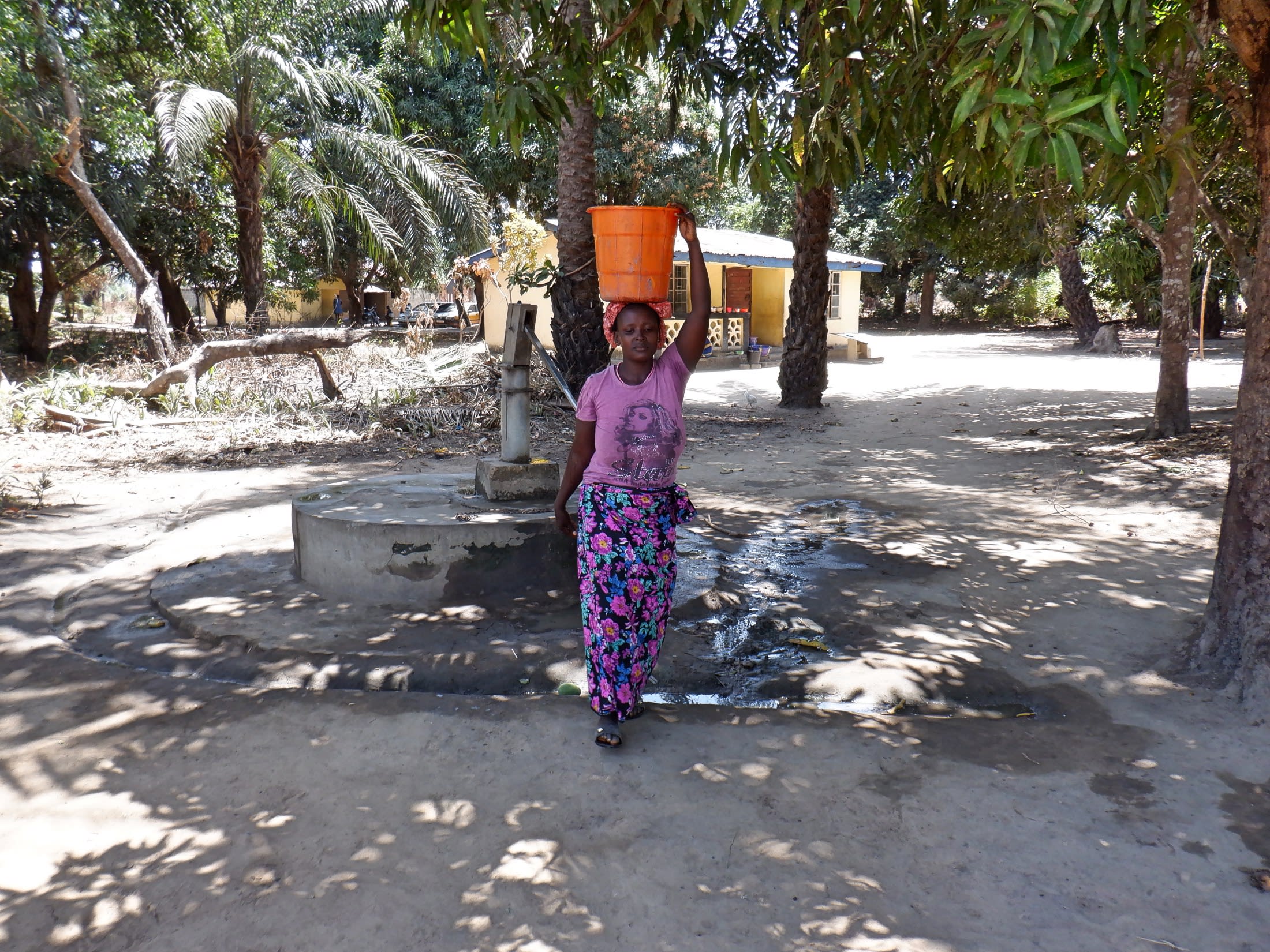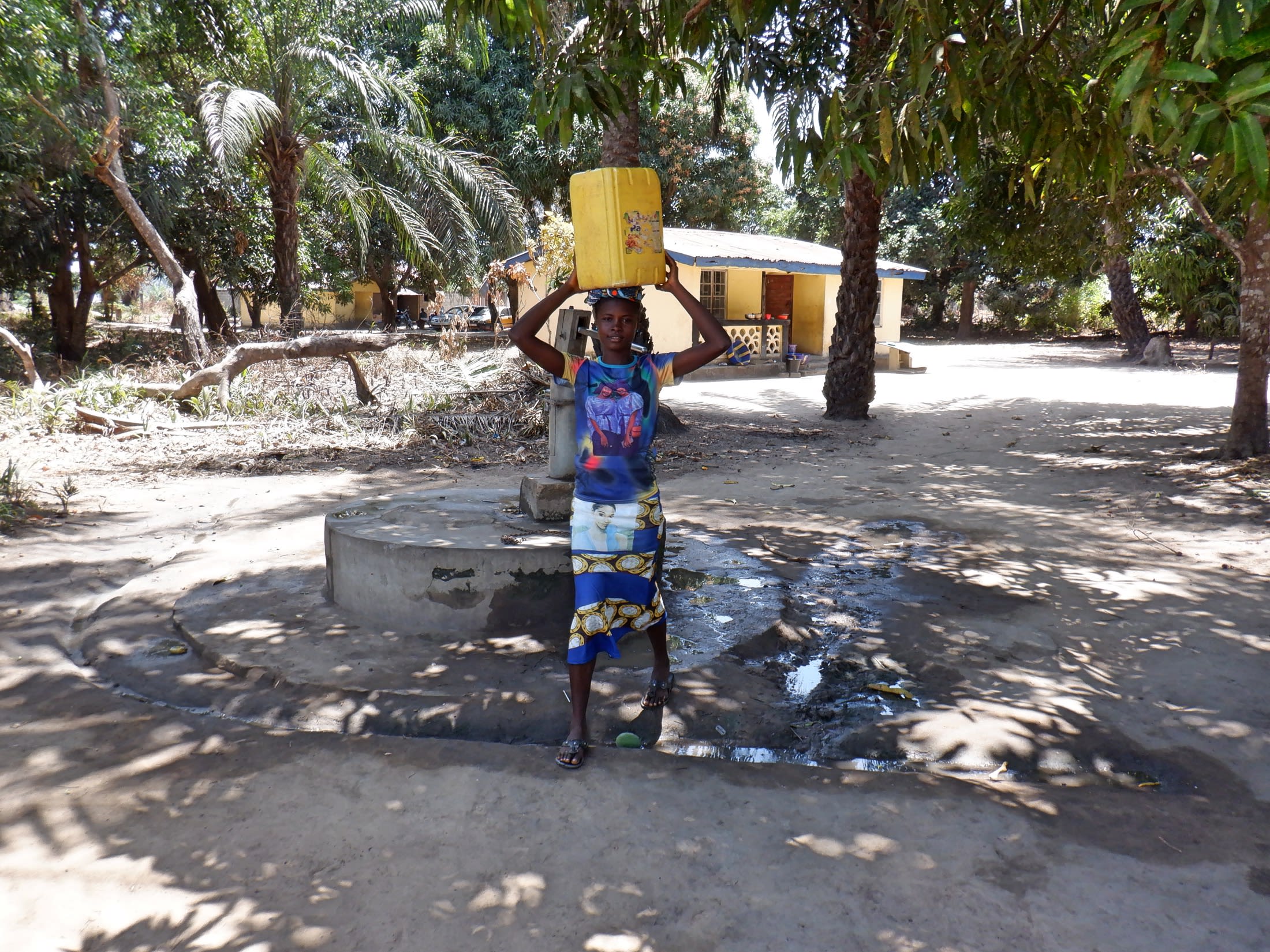The community well in Madina has been broken for quite a while. The only working water source is privately owned, and now that it has begun to yield less water, the owners are restricting access to the well—despite the monthly fees they have paid for the privilege of using it.
"The people taking care of the well put on a bad attitude," said 27-year-old trader and mother Kadiatu Kanu (shown in the photo below). "At times, they hold on to the keys and retain them from us. I must beg them to have access to the key so that I can fetch one jerrycan of water. The water is not even safe for domestic use, especially drinking."

"I normally [pay] 5,000 Leones per month, and it is necessary to come and clean the well surroundings," Kadiatu explained. "The owner of the water source decides the amount you can fetch for a day. But there are times I will not be able to fetch water."
Not having enough water affects every aspect of Kadiatu's life.
"This situation affects me because I need [a] lot of water to wash the napkins (diapers) of my child," Kadiatu explained. "Having less water will make it hard for me to do this work. We all know the difficulties to take care of a child."
It also hurts Kadiatu's ability to make money. All her morning chores require water, but the time to fetch water has become longer and longer as she has to travel farther for it or fight others in long lines. By the time she gets out to sell her wares, she is always late, and many of her customers will already be at their businesses or farms.
"I am living with an extended family and more water is needed to cook and wash the cooking utensils like pots, dishes, mortar, and pestle," Kadiatu said.
As it is often the women and children who are most often sent to fetch water, it's women like Kadiatu and girls like Mariatu who suffer most when a community lacks enough water.

"As a student, there are so many challenges I face in relation to water," said 15-year-old Mariatu S (carrying water from the private well in the photo above).
"Early in the morning, I must go to [the well owners'] compound to fetch water from the protected hand-dug well. The well will be crowded with people, especially in the morning hours. The long waiting time is one of the challenges I usually face when fetching water."
"I need water in the morning to help with things that deal with water, such as boiling water for my grandmother to take her bath before I leave for school," Mariatu continued.
"After I return to the house from school, immediately I must fetch water to cook and launder my siblings' uniforms. I must spend more time at the water source, and it could be difficult to make two trips a day because mostly the well is always overcrowded. This must cause me not to achieve these domestic activities on time, and I [don't] have enough time to rest and read my lesson notes."
With the community's well rehabilitated, water-fetchers will no longer be beholden to private landowners to provide such a necessary resource every day. They will have more time and freedom to accomplish their tasks, and hopefully more happiness and energy will flourish as well.
Here’s what we’re going to do about it:
Well Rehabilitation
The well marked for this overhaul is dry for a few months every year and needs major work to supply adequate, clean water to the community year round. The pump will be removed, and a hand auger will be lowered inside and powered by a drill team. This hand auger will allow the team to drill several meters deeper to hit a sufficient water column that will ensure the well supplies water throughout all seasons.
As the team drills, casing will be installed, transforming the bottom of this hand-dug well into a borehole. PVC piping will connect this lower system directly to the pump, a construction that we know will also improve the quality of water.
Once this plan is implemented, everyone within the community will have access to safe drinking water in both quality and quantity, even through the dry months.
Hygiene and Sanitation Training
There will be hygiene and sanitation training sessions offered for three days in a row.
After our visit, the hygiene and sanitation trainer decided it would be best to teach community members how to build a tippy tap (a hand-washing station built with a jerrycan, string, and sticks). They will use these tippy taps for handwashing demonstrations, and will also teach about other tools like dish racks and the importance of properly penning in animals.
These trainings will also strengthen the water user committee that manages and maintains this well. They enforce proper behavior and report to us whenever they need our help solving a serious problem, like a pump breakdown.

 Borehole Well and Hand Pump
Borehole Well and Hand Pump

































